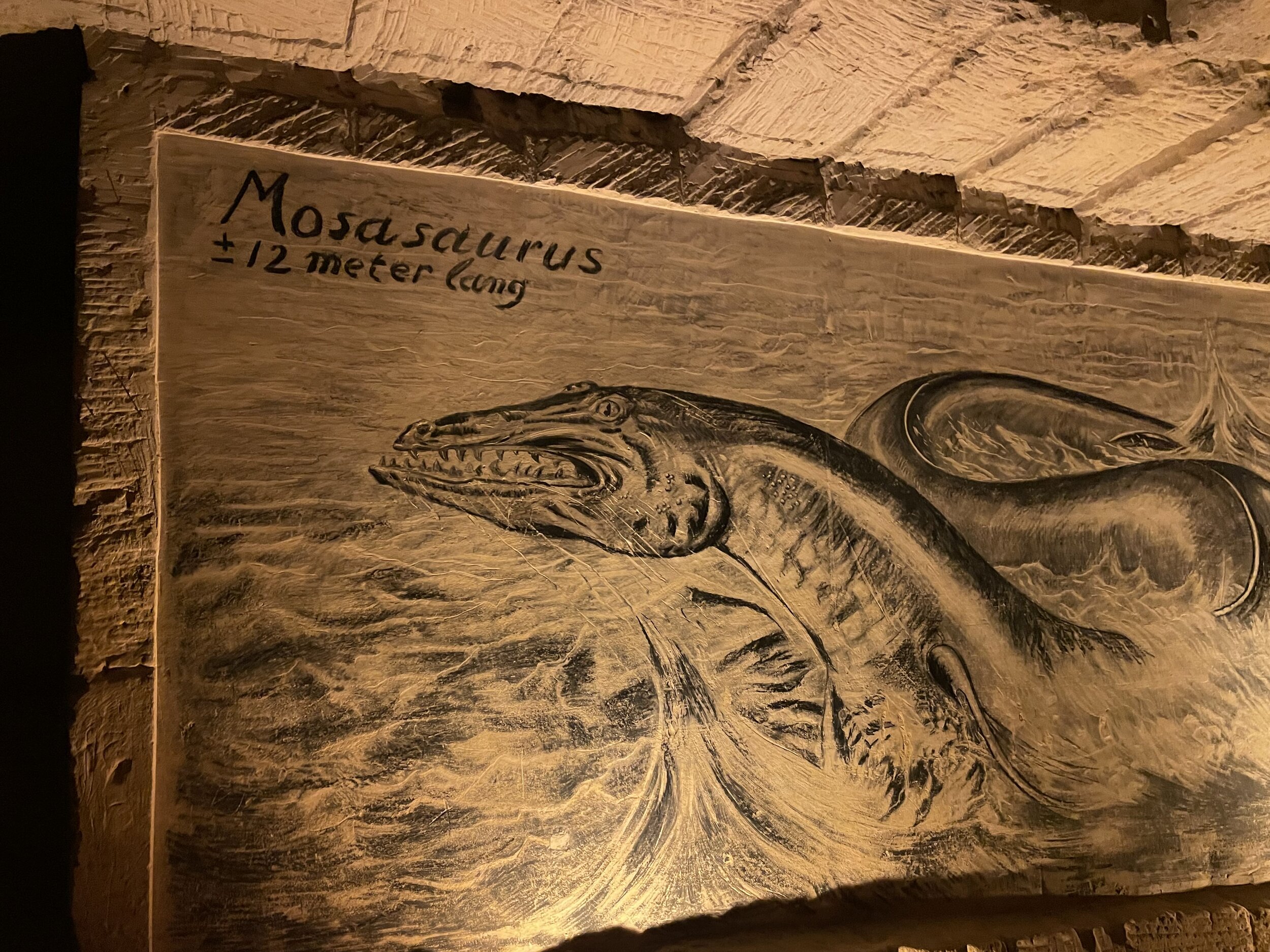F**k Em' Fridays: Change Vs. Noise, Laughter, The Gentleman Criminal, Spacing Effect, & Bruce Lee
Welcome to F**k Em’ Fridays, where every Friday, I attempt to cut through the noise and write about a few things that I learned the past week that have left a meaningful impact. When you’re trying to make your mark in a world full of noise, sometimes, you gotta say F**k Em’:
Change Vs. Noise
“You were born to change the world, not add to the noise.” (Source: Josh The Monster Montez)
This is the quote that inspired me to jump out of bed after a nap in Maastricht and start writing Fuck ‘Em Five Fridays, whatever this is. A newsletter? Article? Blog post? Who gives a fuck?
Like many other creators, I feel the pressure to be constantly tapped into the feed of releasing my creations daily. Twitter, Instagram, Facebook, I need to have something to put out into the world or else everyone will forget about me.
Think of a tweet. Write it. Release. Wait for likes. Get one in three hours. Feel like shit. Write another one to compensate for blow to ego. Get one like in four hours. Twist my nipples and scream in rage.
Why do the Twitter Gods hate me?
Don’t they see I’m hard at work vomiting platitudes into the social ether?
Be yourself and see yourself succeed.
The key to success lies within.
Life isn’t about eliminating problems. It’s about finding the problems that are exciting to solve.
Yeah, I actually wrote that one (see below).
This one deserved at least 5 likes and a retweet if I’m being honest. What the fuck is wrong with people? I’m holding up my end of the bargain. I tweet a platitude, you retweet it, and then I retweet your platitude next week. Don’t they know that’s how it works?
That way, we can keep spewing unoriginal bullshit into the feeds on Twitter, Instagram, and TikTok so that we never have to put in the work to put out an original piece of content ourselves.
It’s an exchange of platitudinal values that keeps the world going ‘round.
But if they don’t want me to be a part of their game, then fuck ‘em.
I’m gonna hold onto my content for a week, think about it, craft it, create it, and then release it into the world in the form of whatever the fuck this thing is you’re reading right now.
I’ll show them!
You’re gonna have to wait for my genius for a full goddamn week.
I kind of want to release this right now though, wouldn’t that be nice? Having something genius to put out into the world every fucking day. Maybe some people can. If you can, God bless you anbd your nipples. I sure as hell can’t. Just ask my nipples.
So, this is my attempt to not contribute to the noise in the world. You know, the shit that populates our feed that’s kind of content but kind of isn’t. It’s like a soup of thoughts that could’ve been great but are now just okay. I know because I’ve contributed to that soup many times for many days.
I could’ve waited. I could’ve sat on those thoughts for a day, a week, or even a few hours. But I didn’t.
I caved into the pressure of daily release and punished the world with my half-baked ideas.
No more.
I’m only putting out fully-baked shitty ideas into the world, and hopefully some good ones too.
I’ll put this thing out on Fridays, and despite every fiber of being in my body begging me to get this out in the next five minutes in the form of a tweet or an instagram post, I won’t.
I’ll wait.
Sure, I’ll still throw up blog posts and podcast clips every day or so.
The blog posts showcase the cool work of other people, people much cooler than me.
And the podcast clips are parts of episodes I work really really hard on, so I deserve to know that you sit down and suffer through them.
You know how long it takes to make a 30 second clip of a podcast on Adobe Premeiere? Add subtitles, pictures to keep you from clicking away, captions to feed the algo monster, cut out any spaces in speech.
I got into podcasting for the long form conversation and find myself sitting in front of a computer editing bite sized clips between to people going back and forth so fast it makes my head spin.
Screw you, watch the clip even if you have to suffer through a pause or a breath.
Whatever, I’ll still cut out the spaces. It’s good for engagement, and the post isn’t the podcast.
It’s a clip meant to entice you to watch or listen to the full episode, so I’ll jazz it up just for you.
So, this is me, not adding to the noise by writing 3 pages on not adding to the noise.
In all seriousness, if you’ve been struggling through something similar, no matter what the “noise” is in your life, I hope helps make things a little bit clearer for you.
So, before every piece of content I put out going forward I’ll ask myself: “Are you adding to the noise? Or, is this something with the potential to change your small corner of the world?”
Only the latter makes it out alive.
Laughter Is Contagious And I’m A Psychopath
This past weekend, my partner and I went on a tour of labyrinth caves in Valkenberg, Netherlands. It was dark, wet, and beautiful. Minutes before the tour, the tour guide informed us that the cave walk would be conducted entirely in Dutch, so no English.
Alright then, fuck it. Let’s do it.
We walked through the Geementegrot Caves marveling at the structure and beauty, while the guide gave a tour in a language neither of us know how to speak.
It was a blast.
Even though we couldn’t understand what was being said about the carvings, cave formation, or history, I found myself looking at things extra - spending more time and energy examining things that I otherwise may not have noticed if I was busy listening to a tour in English.
About halfway through the tour, I realized something strange. Even though I only understood three words in Dutch (“cemetery,” “liberation,” and “whiskey”) I found myself wanting to laugh when other people were laughing. The tour guide would tell what I assume was a joke, the rest of the tour would laugh, and then someone would make a quip, and people laughed some more.
I had no idea what was being said in these exchanged, but something inside me felt lighter just by hearing others around me laugh. Maybe this means I’m a psychopath, but nonetheless I actually caught myself starting to laugh a couple times. What the fuck? Why am I laughing at something that someone said in a language that I don’t understand?
Maybe there’s more than one language. Maybe the language of humor runs more deeply than we think, even beyond verbal communication.
About 18 months ago, I saw Louis C.K. live and everything seemed funny. It’s part of going to a good comedy show with good comics. Your threshold of laughter is lowered severely and even the slightest quip can seem hilarious. It’s not just the hilarity of the words, it’s the hilarity of the atmosphere.
When I was in that cave surrounded by people laughing, I believe I succumbed to a similar effect: a group of people engaging in a common activity that conveys a certain emotion (humor), thereby creating an orb of that emotion surrounding the entire group.
For the first time, in those caves, separate from any sense of understanding, I laughed.
What am I going to do with that information? I have no fucking clue.
Maybe I’ll go on more tours given in languages I don’t know how to speak.
Maybe I’ll seek out more situations involving people that don’t speak English just on the off chance that something funny happens that crosses the language barrier.
Maybe I’ll tell someone who doesn’t speak English to “Go Fuck Themselves,” laugh, and then see if they laugh too.
Although, the sound the f-word is pretty universal so I should probably pick a more unique English profanity.
Cocksucker?
We’ll see.
Cheers and go fuck yourself ;)
And while you do, enjoy some cave photos:





The Gentleman Who Is Also A Criminal
This morning, I was listening to a conversation between Lex Fridman and Roger Reaves, one of the most prolific drug smugglers in history. Reaves flew drugs for the Medellín Cartel and Pablo Escobar and was great friends with Barry Seal, the subject of the film American Made.
What stood out to me most about this conversation was the way that Roger spoke about how the members of the Medellín Cartel conducted business amongst each other. In the frenzy of murder, money, and terrorist activity, Reaves notes that there was little to no backstabbing. It wasn’t part of the culture. If you dealt with the Medellín Cartel, did your job well, and treated others with respect, you would be shown the same in return.
It’s fascinating that in situations with thousands of kilos of cocaine and millions of dollars on the line, respect still has a strong place. Just because you disrespect the law on a massive scale (importing illegal drugs & creating a criminal enterprise) doesn’t give you permission to violate the greatest law to which we hold each other accountable:
Treat me the way you want to be treated
Or more aptly stated by Immanuel Kant as the categorical imperative:
Act as you would want all other people to act towards all other people. Act according to the maxim that you would wish all other rational people to follow, as if it were a universal law.
Sure, drug dealers don’t respect the laws of the land that say you can’t deal drugs, but I’d argue that drug enterprises couldn’t exist without respecting the law of the people:
Don’t fuck me over, and I won’t fuck you over.
It makes you feel good to operate that way and it’s also good for business, and I imagine the drug cartels mostly cared about the latter.
Maybe we can learn a lesson from the cartels: What’s good for people is also good for business.
When greed, selfishness, and unjustified violence enter the mix, you’ve just started the ticking time bomb on your operation.
Pablo Escobar didn’t get caught because he was dealing drugs, sure that was part of it. He got caught because he started taking innocent human lives and valuing short-term profit over long-term successful operations.
He started violating the law of the people beyond what we (governments and the people) were willing to tolerate. Otherwise, if Pablo Escobar was just making a shit ton of money and not taking innocent lives, the CIA might have hired him. Win-Win!
Drug enterprises have been around on some level for hundreds of years. There’s a reason for it, and I believe that reason is the overall gentlemanly manner of operations at the top and the unwillingness to backstab an associate for a quick buck.
Cocaine is illegal in the US (and dozens of other countries), yet every day hundreds, if not thousands of kilos cross the border. How does a bunch of bandits outsmart the US government with jets, tanks, and more soldiers that you can stuff into Rhode Island? Seriously! Drug smuggling enterprises have turned the drug war into a joke. I could go to any major city in the US and find cocaine within the day, chop it up, turn on The Weeknd, blow it up my nostrils, and refill the day next. Do you call that a war? Come on.
The drug war would’ve been lost long ago by the cartels if they on some deep level didn’t conduct business with respect. The suits, the ties, firm handshakes, loyalty, and understanding, it works. It’s good for people and it’s good for business, even if that business is illegal.
People want to feel good and know that they aren’t about to get fucked over.
Whether you’re dealing in cocaine or cocoa butter, making people feel fulfilled, valuable, and respected is always the best long-term option. It makes others want to work for you and keep performing at a high level. The boss reflects the behavior of his associates and employees.
What will my business and relationships look like 10 years from now? > What’s the best way to make a short-term profit?
The Spacing Effect - Huberman Lab
On a recent episode of Huberman Lab hosted by Dr. Andrew Huberman (neuroscientist, Professor of Neurobiology and Ophthalmology at Stanford University School of Medicine), Dr. Huberman discusses a fascinating study on the “spacing effect.” This spacing effect is a phenomenon where your brain rehearses a skill at 20x the speed at which you practice it.
For example, let’s say you’re learning a scale on the piano (the same example Dr. Huberman uses and is also used in the study) and you play that scale 5x in 10 seconds. If you take an undistracted rest for 10 seconds, your brain will rehearse that skill for 100 reps (20X !!!) in the same period of time.
Injecting these mini periods of undistracted rest (no phones, loud music, apps, etc.) allows your brain to work for you to the tune of 20X the speed. It turns out that when you rest, your brain doesn’t go offline. It is busy turning out these rapid repetitions resulting in micro-offline gains.
If you’re interested in learning anything at a faster pace (skill, language, etc.) it’s in your best interest to check on this segment on Huberman lab. Having your mind work for you during rest periods at 20X the speed? That’s a no-brainer;)
It makes me wonder, what else aren’t we harnessing our brains for that we could be? If we’re just finding out now that our brains can rehearse a skill at 20X the speed during periods of undistracted rest, what are we going to find out 5 years, 20 years, or 100 years from now?
We’re busy trying to get to Mars and map the entire ocean floor, yet huge chunks of our brainpower remain largely unexplored. I’m grateful for scientists like Dr. Andrew Huberman who are on the frontier of figuring out what our brains are truly capable of.
Also, how toxic is distraction? This brain rehearsal process described by Dr. Huberman only works when we don’t scroll through TikTok, Twitter, or any other type of distraction. Will we find out in the future that distraction is actually poison to our brains? Not just poison in the sense of “this makes me feel like shit,” but actually neurological decay that’s being deposited in our brains that affects our ability to learn new things and record memories. Maybe TikTok is rotting our brains from the inside out and we don’t have the tools yet to observe the decay.
Which reminds me, I haven’t posted on TikTok in a while. Does not posting or scrolling through the black hole of TikTok make me better, or does it just make me feel like I’m better than everyone else? Who knows? Maybe I’ll post a TikTok about it.
Side Note: Andrew Huberman just recorded an episode on JRE where he shares his best sleep cocktail supported by research:
Magnesium Threonate - 300/400 mg
Apigenin - 50 mg
Theanine - 100-400 mg
I’m grateful that I’ve never struggled for a prolonged period of time to fall asleep. Nonetheless, my sleep can always be better so I’ll be giving this a shot.
“Be water, my friend.” - Bruce Lee
I’ve been on a Bruce Lee Bender recently. For over a week, I watched Bruce Lee interviews and films to prepare for a podcast episode on The Aux. Now, I’m reading his biography by Matthew Poly, Bruce Lee: A Life, which I bought after listening to Quentin Tarantino speak on the mythology of Bruce Lee vs. the man. Here’s an excerpt from an essay written by Bruce Lee shared in Matthew Poly’s book:
Preserve yourself by following the natural bends of things and don’t interfere. Remember never be in frontal opposition to any problem, but control by swinging with it…
The following week I stayed home. After spending many hours in meditation and practice, I gave up and went sailing alone in a junk. On the sea, I thought of all my past training and got mad at myself and punched the water. Right at that moment a thought suddenly struck me: Wasn’t this water the essence of kung fu? I struck it just now but it did not suffer hurt. Although it seemed weak, it could penetrate the hardest substance in the world. That was it! I wanted to be like the nature of water.
I lay on the boat and felt that I had united with the Tao; I had become one with nature. The whole world to me was unitary.
No matter whether you think Bruce Lee is a shill who’d get his ass beat by any UFC fighter or the greatest martial artist to ever live, you have to admit that Lee left a massive mark on the philosophy of fighting.
Even the most casual practitioners can’t escape the maxims of Bruce Lee posted in a gym or talked about amongst sparring partners. Be Water, my friend.
There is no glory in facing a problem head-on, wasting huge sums of energy and dollars, when that same problem could have been sidestepped entirely for the same or better outcome. That’s what I take away from Bruce Lee. Stay in control not with brute force, but by applying enough force to achieve fluidity.
Swing your problems.
When you swing something, like a steel mace, the force of yourself and nature work together in unison to bring the mace back into the desired position. Even when you aren’t working, gravity is hard at work helping you problem solve a sequence of motion.
If you approach your problems with brute force, like punching a wall, the work only happens when your fist makes contact with the wall and you have to generate all of that force yourself. In fact, gravity (nature) is holding you back in that case.
Approach problems the same way.
Actively seek out ways to position yourself so that nature and others flow with you towards a solution. What can I do to make others want to work for me? What can I do to tilt the forces at work in my favor?
It’s simple, and not easy.
I fail at this and have failed many times. Looking back on my life, it’s crazy how many times I chose to solve a problem by punching it rather than looking for ways to swing, go with the flow.
But when I do achieve this flow state, it feels like nothing can go wrong and everyone on the planet wants things for me, to go right. I don’t have an exact formula to achieve this “swinging” state, and I suspect it’s personal to each individual, but I do know this state can’t exist without three things:
A desire to see others succeed and flourish
An active, action-based, autonomous outlook (creating your life, not letting things happen, playing the victim)
Scheduled periods of deep thought
The last is where I need the most work. I’m geared towards action and I have a great life (family, friends, work) which makes it easier to see others want to succeed. But action without deep thought is blind motion. I’m steadily incorporating more time to think deeply about aligning my actions to my overarching goals, professionally and personally. My favorite way to do this is to go on long walks with no phone and something to take notes. Sometimes, I bring my phone and put it on ‘Do Not Disturb.’
I encourage you to experiment with periods of deep thought. If you have any practices that work especially well for you to get into deep thinking sessions, leave a comment on this article or shoot me an email at zach@auxoro.com.
Cheers,
Zach


